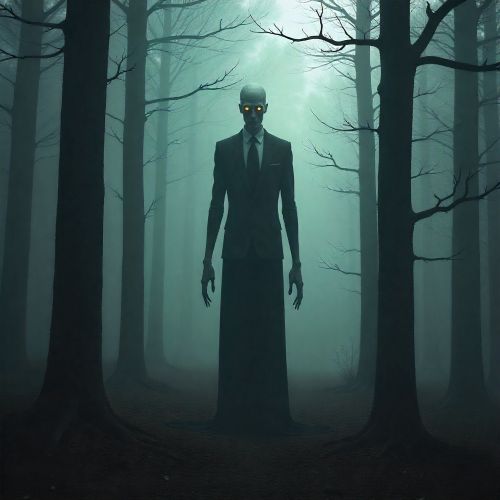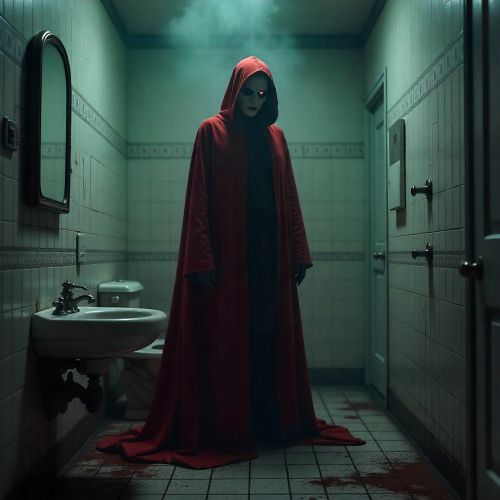Papa Gede : The Trickster Spirit
Listen
At a glance
| Description | |
|---|---|
| Origin | Vodou Mythology |
| Classification | Spirits |
| Family Members | N/A |
| Region | Haiti |
| Associated With | Death, Fertility, Trickster |
Papa Gede
Introduction
Papa Gede is one of the most distinctive and influential figures in Haitian Vodou and Caribbean spirituality. As the first of the Gede spirits, or lwa, who preside over death, fertility, and rebirth, he represents the eternal cycle of life and the bridge between the living and the dead. Known for his dark humor, wisdom, and compassion, Papa Gede is both a guardian of cemeteries and a playful trickster who reminds humanity not to fear death. His energy embodies contradiction, he rules over the end of life while also encouraging fertility, laughter, and renewal. In Vodou tradition, Papa Gede is believed to be the soul of the first person who ever died, granting him dominion over the spirits of the dead and the power to guide them to Ginen, the ancestral realm.
Physical Traits
Papa Gede’s appearance is instantly recognizable and full of symbolic meaning. He is often depicted wearing a black top hat, a dark undertaker’s coat, and sunglasses with one lens missing, representing his ability to see both the world of the living and the realm of the dead. His attire mirrors that of a 19th-century undertaker, blending dignity with eccentricity. He frequently smokes cigars and eats apples whoich were symbols of vitality and knowledge and carries a cane as a sign of authority. His face, sometimes painted like a skull, reflects both death and transformation. The combination of his somber clothing and playful demeanor captures his unique nature: he is as much a figure of joy as he is of mortality. When he possesses a devotee during Vodou ceremonies, he often dances provocatively, cracks lewd jokes, and displays an unrestrained zest for life. This theatricality reinforces his philosophy that death is not an end but a continuation of the soul’s journey.
Family
As the patriarch of the Gede family, Papa Gede leads a powerful lineage of spirits that oversee death, resurrection, and the transition of souls. The Gede are not mournful entities but lively, irreverent spirits who use humor to teach spiritual lessons. Among them are Gede Nibo, protector of those who die young or by violence, and Gran Brigitte, the fierce guardian of cemeteries and wife of Baron Samedi. Other members like Gede Fouye, who digs graves, and Gede L’Orage, associated with storms, carry out various duties linked to the passage between life and death. The Gede family is also intertwined with the Bawon spirits, especially Baron Samedi, who is sometimes seen as Papa Gede’s twin or alter ego. While Baron Samedi represents the authority and solemnity of death, Papa Gede embodies its humor, compassion, and the human spirit’s refusal to be subdued by fear.
Other names
Papa Gede is known by various names across different Vodou communities and diasporic traditions. He is often called Gede, Guede, or Papa Guede, depending on regional dialects. In some traditions, he is closely linked or even merged with Baron Samedi, while others maintain a distinction between the two, portraying Papa Gede as the original soul of the dead and Baron as the overseer of all spirits in the cemetery. In syncretic interpretations, particularly in Haitian Catholic communities, Papa Gede is sometimes identified with Saint Gerard, the patron saint of pregnant women and childbirth, reflecting his dual connection to fertility and death. Regardless of the variation, his name always evokes the same essential qualities: humor in the face of despair, wisdom born of mortality, and a profound love for life.
Powers and Abilities
Papa Gede wields extraordinary powers that span both life and death. As a psychopomp, he guides souls from the mortal world to the ancestral realm, ensuring their safe transition. He can perceive when a person’s time has come and is especially protective of children, often intervening to prevent premature deaths. His deep understanding of the human condition allows him to see through lies and deceit; no secret can be hidden from him. This ability makes him a spirit of truth and justice, though his messages are often delivered through crude jokes or riddles. Papa Gede is also associated with fertility, sexuality, and healing. He governs life force and renewal, which is why offerings of spicy food, rum infused with peppers, cigars, and black coffee are given to invoke his presence. During rituals, he displays an exuberant energy, eating glass, drinking fiery rum, and performing the sensual banda dance—a symbolic act of life’s persistence amid death. His bawdy humor and uninhibited nature serve a sacred purpose: to break taboos, expose hypocrisy, and remind people that laughter is a form of resilience.
Modern Day Influence
Powers and Abilities
Papa Gede wields extraordinary powers that span both life and death. As a psychopomp, he guides souls from the mortal world to the ancestral realm, ensuring their safe transition. He can perceive when a person’s time has come and is especially protective of children, often intervening to prevent premature deaths. His deep understanding of the human condition allows him to see through lies and deceit; no secret can be hidden from him. This ability makes him a spirit of truth and justice, though his messages are often delivered through crude jokes or riddles. Papa Gede is also associated with fertility, sexuality, and healing. He governs life force and renewal, which is why offerings of spicy food, rum infused with peppers, cigars, and black coffee are given to invoke his presence. During rituals, he displays an exuberant energy, eating glass, drinking fiery rum, and performing the sensual banda dance—a symbolic act of life’s persistence amid death. His bawdy humor and uninhibited nature serve a sacred purpose: to break taboos, expose hypocrisy, and remind people that laughter is a form of resilience.
Modern Day Influences
Papa Gede’s influence remains vibrant in modern Haitian Vodou and across the Caribbean diaspora. Each year, his spirit comes alive during Fèt Gede, the Festival of the Dead, celebrated on November 1st and 2nd. This festival blends African ancestral reverence with Catholic All Saints’ and All Souls’ Day observances. Devotees, dressed in black, white, and purple—the Gede’s sacred colors—gather in cemeteries, covering their faces with white powder and donning dark glasses. Offerings of rum, cigars, and food are made at the tombs of Baron Samedi and Gran Brigitte, while the living dance, sing, and allow themselves to be possessed by the Gede spirits. The atmosphere is charged with both reverence and revelry, a vivid expression of the belief that death is not the end but a renewal of life’s cycle.
In New Orleans and other parts of the Caribbean, Papa Gede’s image is often incorporated into art, music, and performance. Jazz funerals, for instance, echo his philosophy of joy amid mourning, blending somber processions with lively music. Contemporary artists and writers invoke Papa Gede as a symbol of resistance, transformation, and healing. In neo-Vodou and Afro-diasporic spiritual movements, he is also regarded as a guide for shadow work—helping individuals confront death, trauma, and rebirth within their personal lives. His humor and irreverence have even entered popular culture, inspiring fictional portrayals in books, films, and television that explore the mystique of Haitian Vodou.
Papa Gede’s enduring presence is a testament to the resilience of Haitian culture and spirituality. He reminds believers that life and death are inseparable forces and that laughter is a sacred act of defiance against despair. Through every dance, joke, and ritual performed in his name, Papa Gede continues to affirm the vitality of the human spirit. His influence extends far beyond the cemetery gates—into the heart of everyday life, where humor, compassion, and faith in continuity define the essence of what it means to be alive.
Related Images
Source
Gede (Haitian Vodou). (n.d.). In Wikipedia. Retrieved from https://en.wikipedia.org/wiki/Gede_(Haitian_Vodou)[1]
Lore of Ancestors. (n.d.). Papa Ghede: Ruler of Ghede Loa – Vodou. Retrieved from https://www.loreofancestors.com/vodou/papa-ghede/
Study.com. (2024, September 17). Voodoo Religion Origins, History, & Beliefs. Retrieved from https://study.com/academy/lesson/voodoo-religions-history-facts.html
ViA NolaVie. (2020, November 1). Ghede: Voodoo spirits in New Orleans traditions. Retrieved from https://www.vianolavie.org/2020/11/02/ghede-voodoo-spirits-in-new-orleans-traditions/
Brown, K. M. (1991). Mama Lola: A Vodou Priestess in Brooklyn. Berkeley: University of California Press.
Desmangles, L. G. (1992). The Faces of the Gods: Vodou and Roman Catholicism in Haiti. Chapel Hill: University of North Carolina Press.
McCarthy Brown, K. (2010). Vodou in Haitian Life and Culture: Invisible Powers. New York: Palgrave Macmillan.
Ramsey, K. (2011). The Spirits and the Law: Vodou and Power in Haiti. Chicago: University of Chicago Press.
Frequently Asked Questions
What is lorem Ipsum?
I am text block. Click edit button to change this text. Lorem ipsum dolor sit amet, consectetur adipiscing elit. Ut elit tellus, luctus nec ullamcorper mattis, pulvinar dapibus leo.
What is lorem Ipsum?
I am text block. Click edit button to change this text. Lorem ipsum dolor sit amet, consectetur adipiscing elit. Ut elit tellus, luctus nec ullamcorper mattis, pulvinar dapibus leo.
What is lorem Ipsum?
I am text block. Click edit button to change this text. Lorem ipsum dolor sit amet, consectetur adipiscing elit. Ut elit tellus, luctus nec ullamcorper mattis, pulvinar dapibus leo.
What is lorem Ipsum?
I am text block. Click edit button to change this text. Lorem ipsum dolor sit amet, consectetur adipiscing elit. Ut elit tellus, luctus nec ullamcorper mattis, pulvinar dapibus leo.
What is lorem Ipsum?
I am text block. Click edit button to change this text. Lorem ipsum dolor sit amet, consectetur adipiscing elit. Ut elit tellus, luctus nec ullamcorper mattis, pulvinar dapibus leo.






